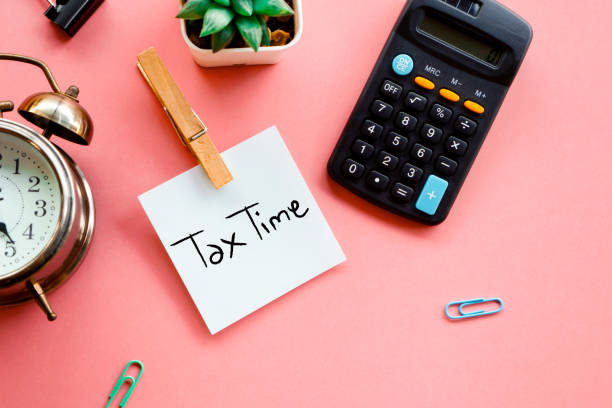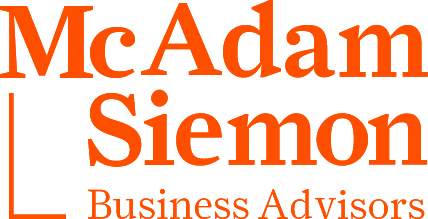News
Tax Time Targets
Posted: 22 June 2022

The ATO has flagged four priority areas this tax season where people are making mistakes.
With tax season almost upon us the Australian Taxation Office (ATO) has revealed its four areas of focus this tax season.
- Record-keeping
- Work-related expenses
- Rental property income and deductions, and
- Capital gains from crypto assets, property, and shares.
In general, there are three ‘golden rules’ when claiming tax deductions:
- You must have spent the money and not been reimbursed.
- If the expense is for a mix of work related (income producing) and private use, you can only claim the portion that relates to how you earn your income.
- You need to have a record to prove it.
1.0 Record keeping
101 of working with the ATO is that you can’t claim it if you can’t prove it. If you are audited, the ATO will disallow deductions for unsubstantiated or unreasonable expenses.
2.0 Work-related expenses
To claim a deduction, you need to have incurred the expense yourself and not been reimbursed by your employer or business, and the expense needs to be directly related to your work.
Claiming work from home expenses
If you claimed work from home expenses last year and returned to the office this year, then there should be a reduction in your work from home claim. The ATO will be looking for discrepancies.
If you are claiming your expenses, there are three methods you can use:
- The ATO’s simplified 80 cents per hour short-cut method – you can claim 80 cents for every hour you worked from home from 1 March 2020 to 30 June 2022. You will need to have evidence of hours worked like a timesheet or diary. The rate covers all of your expenses and you cannot claim individual items separately, such as office furniture or a computer.
- Fixed rate 52 cents per hour method – applies if you have set up a home office but are not running a business from home. You can claim 52 cents for every hour and this covers the running expenses of your home. You can claim your phone, internet, or the decline in value of equipment separately.
- Actual expenses method – you can claim the actual expenses you incur (and reduce the claim by any personal use and use by other family members). You will need to ensure you have kept records such as receipts to use this method.
3.0 Rental property income and deductions
For landlords, the focus is on ensuring that all income received, whether long-term, short-term, rental bonds, back payments, or insurance pay-outs, are recognised in your tax return.
If your rental property is outside of Australia, and you are an Australian resident for tax purposes, you must recognise the rental income you received in your tax return (excluding any tax you have paid overseas), unless you are classified as a temporary resident for tax purposes. You can claim expenses related to the property, although there are some special rules that need to be considered when it comes to interest deductions. For example, if you have borrowed money from an overseas lender you might be subject to withholding tax obligations.
4.0 Capital gains from crypto, property or other assets
Crypto and capital gains tax
A question that often comes up is when do I pay tax on cryptocurrency?
If you acquire the cryptocurrency to make a private purchase and you don’t hold onto it, the crypto might qualify as a personal use asset. But in most cases, that is not the case and people acquire crypto as an investment, even if they do sometimes use it to buy things.
Generally, a CGT event occurs when disposing of cryptocurrency. This can include selling cryptocurrency for a fiat currency (e.g., $AUD), exchanging one cryptocurrency for another, gifting it, trading it, or using it to pay for goods or services.
Each cryptocurrency is a separate asset for CGT purposes. When you dispose of one cryptocurrency to acquire another, you are disposing of one CGT asset and acquiring another CGT asset. This triggers a taxing event.
Transferring cryptocurrency from one wallet to another is not a CGT disposal if you maintain ownership of the coin.
Record keeping is extremely important – you need receipts and details of the type of coin, purchase price, date and time of transactions in Australian dollars, records for any exchanges, digital wallet and keys, and what has been paid in commissions or brokerage fees, and records of tax agent, accountant and legal costs. The ATO regularly runs data matching projects, and has access to the data from many crypto platforms and banks.
If you make a loss on cryptocurrency, you can generally only claim the loss as a deduction if you are in the business of trading.
ATO refocus on debt collection
The ATO has not pursued many business tax debts during the pandemic and allowed tax refunds to flow through even if the business had a tax debt. That position has now changed and the ATO has resumed debt collection and offsetting tax debts against refunds.
If you have a tax debt that has been on-hold, expect the ATO to offset any refunds against this debt, and take steps to actively pursue the payment of the debt. Small business account for around two thirds of the total debt owed to the ATO. If you have a tax debt, it is important that you engage with the ATO to work out how this debt will be paid.
SG rate and rate increase
No change to the legislated superannuation guarantee rate increase. The SG rate will increase to 10.5% on 1 July 2022 and steadily increase by 0.5% each year until it reaches 12% on 1 July 2025.
Quote:
“Almost everything worthwhile carries with some sort of risk, whether it is starting a business, whether it’s leaving home, whether it’s getting married, or whether it’s flying in space”.
Chris Hadfield, astronaut
